Homestretch of Falls Church Helps Families with Children Overcome Homelessness

If you’ve walked downtown near the offices of Homestretch at 303 S. Maple Ave., you might have noticed the charming processions of young school students following their teachers on an outing, adjacent to their assigned partners and tethered to their trusty guideline. Carrying stop signs and clipboards, the teachers keep their wary eyes out for traffic, and remind the kids to “stop, look, and listen” before crossing the street.
Likely, the young ones were preschoolers of Kidstretch – the in-house school program for the nonprofit Homestretch organization dedicated to “empowering low-income homeless families in Northern Virginia to return to stable housing and self-sufficiency by giving them the skills, knowledge and hope they need to become productive participants in their communities.”
And, the students of these homeless families were probably on their way to or from recess just a few blocks past the bowling alley at the City’s Big Chimneys Park’s playground.
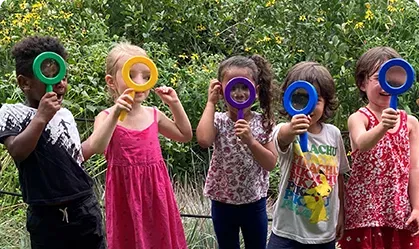
The Falls Church Independent interviewed Julie Crain, volunteer coordinator for the Homestretch program at 303 S. Maple Ave., to find out more about the organization, its approaches to helping unhoused families, its models for success, and what sorts of initiatives the group’s working on.
In a previous article on Mayor Hardi’s community outreach visit to the 455 Tinner Hill Apartments, we noticed the mayor mentioned Homestretch immediately when asked by a resident about charitable groups in the City of Falls Church. Then, we received a press release from Homestretch announcing their Back-to-School backpack drive – more on that below. So, our curiosity about the organization was piqued.
Interview with Homestretch Volunteer Coordinator, Julie Crain
The following interview is edited for length and clarity.
FCI: Could you tell us a bit about Homestretch?
Julie Crain: We’re one of many nonprofits in Falls Church City. We provide transitional housing and supportive services to homeless families with children. So all of our clients have children. They’re all referred to us by local shelters, churches, and schools. We only accept referrals. Once a family joins us, they're provided with a fully-furnished apartment.
And then they’re ‘put to work.’ We provide employment counseling, English as a second language if they need that, and mental health supports. We have case managers who work with them. The goal is that they stabilize because the majority of them are coming to us from some pretty bad situations, domestic violence, human trafficking, bad things.
So, once they get in and get into that apartment, that provides them with a little bit of stability and then they start the work towards self-sufficiency. The goal is for them to graduate from Homestretch with a job that pays enough to live in market-rate housing in our area. So many of them come to us and they have jobs. I don’t know if you’ve read, but there’s been a lot of press recently about homeless people who are actually working, but living in their cars –
FCI: I saw an article on that in The Washington Post just the other day.
JC: Right. So some of our clients come to us and they already have jobs, but our goal is to get them a job that pays them more. So a lot of them are steered towards certification programs, if that’s appropriate – such as medical, phlebotomy, that sort of thing. Certification programs are pretty much the speediest way they can get an education and a certification to get a better paying job.
FCI: Oh, interesting.
JC: We provide services for the children as well. And the backpacks are one of those services. We also have a preschool on site. We were finding that a lot of the children in our program were entering the local public schools way behind, because they had been coming from some pretty bad situations. So we started Kidstretch in 2012, I think. And Homestretch has been around since 1990. So we’re about to have our 35th year next year. So Kidstretch is a preschool program and our clients who attend Kidstretch are now entering the local public schools at or above their peers. And these are Falls Church City Schools, Fairfax County Schools – the best schools in the country.
FCI: That’s very striking.
JC: Yeah, so they’re having some success there. The clients, they can be with us for two years or so. Some finish far quicker than that. Some are here a little bit longer. And, as I said, once they graduate, they're able to move into market-rate housing. We’ve got a huge success rate… A large percentage do not return to homelessness… I think it’s nearly 90 percent. Or, maybe it’s 88 percent… Also, while they’re here, they’re given credit counseling services because a lot of them come to us with a great deal of debt and bad credit. So we have a credit counselor who works with them to drill down that debt and boost their credit rating. And the majority of our clients graduate with a savings account.
FCI: That’s awesome. So, can you tell me how many staff you have?
JC: We have, I would say roughly 24 or 25.
FCI: And how many teachers do you have in the program? Is it done by volunteers or do you have teachers?
JC: In the preschool, there’s the director and then there are probably 4 teachers, but they’re not all together at the same time…. They’re paid staff. We do have some volunteers who will come in and help out, one or two folks who will come in once or twice a week. They’re from the neighborhood and they’ve been doing that for years.
FCI: So, what would you say to people who don’t know about the backpack initiative you do. Why is it so important?
JC: Well, we do serve the whole family and, believe it or not, poverty is generational. It passes from generation to generation. So, the way we can help the children is to focus on education. So we supply them with all the school supplies they need. It obviously helps relieve the parents of that expense as well. And we’ll present those to the kids at a party at the end of the summer.
We also have a Back-to-School Clothing Drive. So they’ll come in and get shoes and that sort of thing. But we focus a lot on education with the kids. In fact, if their parents bring in their report card, they get a little prize for that. You know, in some cultures education isn’t that important, but we feel that it’s really important in breaking one of those barriers a family’s been facing.
FCI: So, how are you guys funded generally?
JC: We receive some funding from the City of Falls Church. Because we don’t meet the rapid-rehousing model, we do not get any federal funding. Their model is sort of quick – like get-’em-in-get-’em-out. We receive funding from foundations, from individuals, and from corporate donors…. And faith and civic groups.
We actually have great support from the local faith community. We have something called the Sacred Homes Program. And some of the local churches and synagogues will adopt a family in whatever way makes the most sense for their congregation. It could be that they pay their rent for a year, or they provide Christmas gifts for the children. It takes different forms depending on the church and what makes sense for them.
FCI: And you’re a non-denominational organization?
JC: Right. We are non-denominational.
FCI: So, if people were interested in volunteering what would you suggest?
JC: Well, they can contact me [at: jcrain@homestretchva.org]. That’s my role here. We don’t have a lot of volunteer opportunities but we do have some. Because we’re not a homeless shelter – you know, shelters have a lot of regular needs. But, we do have a big need for individual tutors. Some of our clients are taking ESL classes, but they need additional supports. Some of them are studying for their GED, their citizenship tests, their driving tests. And then we also have tutors available in our employment center who also help with resume writing, interview skills, and that sort of thing. That’s where individuals come in.
FCI: And the rest of the services are with your professional staff?
JC: Yes.
FCI: That’s an unusual model.
JC: Yes. I think we break a few molds here. I don’t think we quite fit the model. We don’t fit the rapid-rehousing model.
FCI: And, what other molds do you break?
JC: Well, like you said, we have professional staff here. We have professional case-workers, not volunteers. We do not fall into the rapid re-housing model which will generally provide an individual or family an apartment or housing for 1-3 months and after that time, if they can afford it, they can stay, but if they can’t, they’ve got to go. So most wind up right back out on the street. So, we have a different model. We also serve a very at-risk population. We get the worst of the worst cases.
FCI: You said they’re referred to you. Do they have to be in the City? In Falls Church? And what’s the vetting process like?
JC: Well, I do not do the assessment end of things here. But they are assessed. First of all, they have to meet the requirement that they have children. We do get a lot of calls here saying, ‘I’m homeless; can you help me?’ And they do need to be referred to us by a social service agency, by a church, and a lot of times a school will identify a homeless child before anybody else notices. So we also get referrals from schools as well.
FCI: When you get a referral, then that family comes in for an interview?
JC: Yes, there’s an interview process. The family comes in. But, as I said, I don’t take part in the assessment, but I think it’s just to determine what barriers that family faces and also, 'Do we have space for them?' So, we own or rent 50 apartments in and around Falls Church. We’ve got some in Annandale, some in Fairfax County, some in Falls Church City. We might have a couple out in Centreville. But, mostly right around this immediate area.
FCI: Do they have to be from the immediate area or one of those sites?
JC: No, I think as long as they’re referred to us by a local agency, I don’t think we take referrals from out-of-state or anything. Primarily it’s northern Virginia.
FCI: I’ve seen the little kids walking around the offices.
JC: Yeah, with the little stop sign and the leash? Those are kids from Kidstretch. They don’t have a playground but we take full advantage of the Big Chimneys Park the City owns off of Annandale Road, right by the Harris Teeter.
FCI: That’s good to know. The mayor was doing a community outreach at 455 Tinner and you were the first one she mentioned.
JC: Oh, very good. We'll also have folks who'll do donation drives on our behalf. That’s a great way for teenagers to help us. We had a young man from Meridian High School whose summer project – I think directed by his parents and not necessarily the school – He did a donation drive for us for household supplies because we provide all of those things: toiletries, bags, laundry detergent, all of these things to our clients. So, all of that is donated.
And when they move into a furnished apartment, it’s really furnished. It’s complete with silverware, the plates, the glasses, the shower curtains, the towels, the beds, the sheets, everything.
FCI: That’s great. Is there a wishlist on your website?
JC: Yes. They can go to our website. [Amazon wishlist link provided.] There’s an area there for donating funds and things. And also for volunteering.
FCI: Anything else you’d like to say to the community?
JC: It’s such a fantastic organization. I’ve been here just shy of a year. But I’ve been a donor and a fan of them for many years. And like I said, it’s an unusual model, it’s a very dedicated staff that works individually with these people and really, really turns lives around. It’s really breaking the cycle of poverty.
FCI: That’s awesome. And you’re from Falls Church?
JC: Yes.
FCI: How did you first become aware of them?
JC: Actually a good friend of mine used to serve on the Board of Directors here and that’s where I learned about it, through her. But, she hasn’t been on the Board for years.
FCI: Thanks so much for all the great work you do in the community!
Homestretch’s School Backpack Drive
Following is a press release entitled “Local organizations help equip homeless children for school,” from Homestretch:
“With the help of several local organizations, Homestretch will be providing filled back packs to all of the children in their program to ready them for the 2024-25 school year. Donors include the Virginia Treasurer’s Association, Redeemer Lutheran Church, HITT Contracting, the Long & Foster Gold Team, and Duty First Consulting. The backpacks were filled by volunteers from the Young Men’s Service League.”
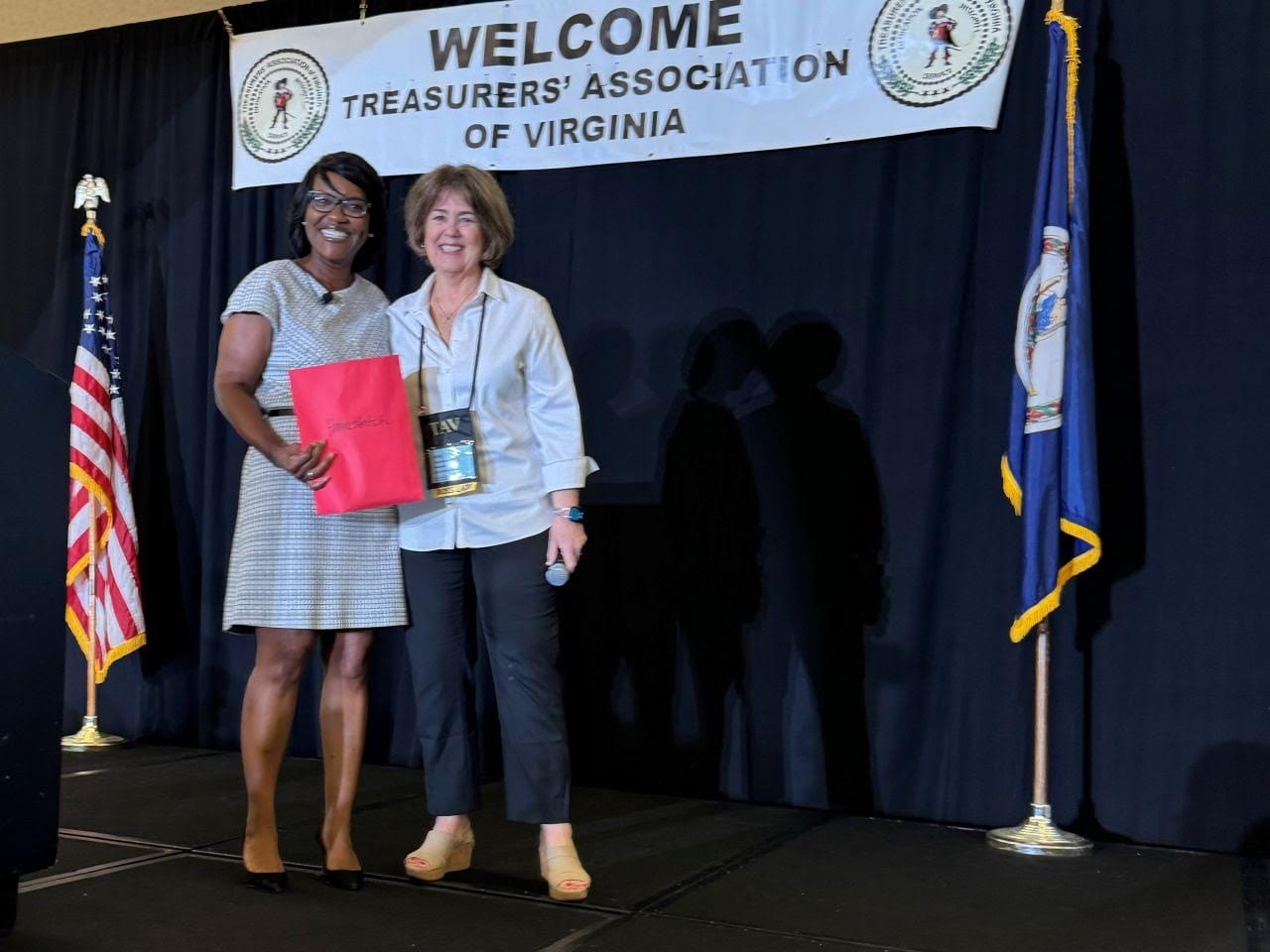
“Homestretch has been providing transitional housing and wrap-around supportive services to homeless families with children since 1990. Their program is designed to work with each family, individually, to help them develop a measurable and achievable service plan which addresses the root causes of homelessness. 65% of the families they serve are homeless due to domestic violence, while others are homeless due to medical crises, human trafficking, loss of loved ones or some other economic downturn. Nearly 90% of their graduates report being permanently housed, employed full or part time, and have retained or increased their income since leaving the program.”
“Homestretch is funded by the City of Falls Church, corporations, foundations, civic groups, faith institutions and individuals. More information on their program can be found at: www.homestretchva.org.”
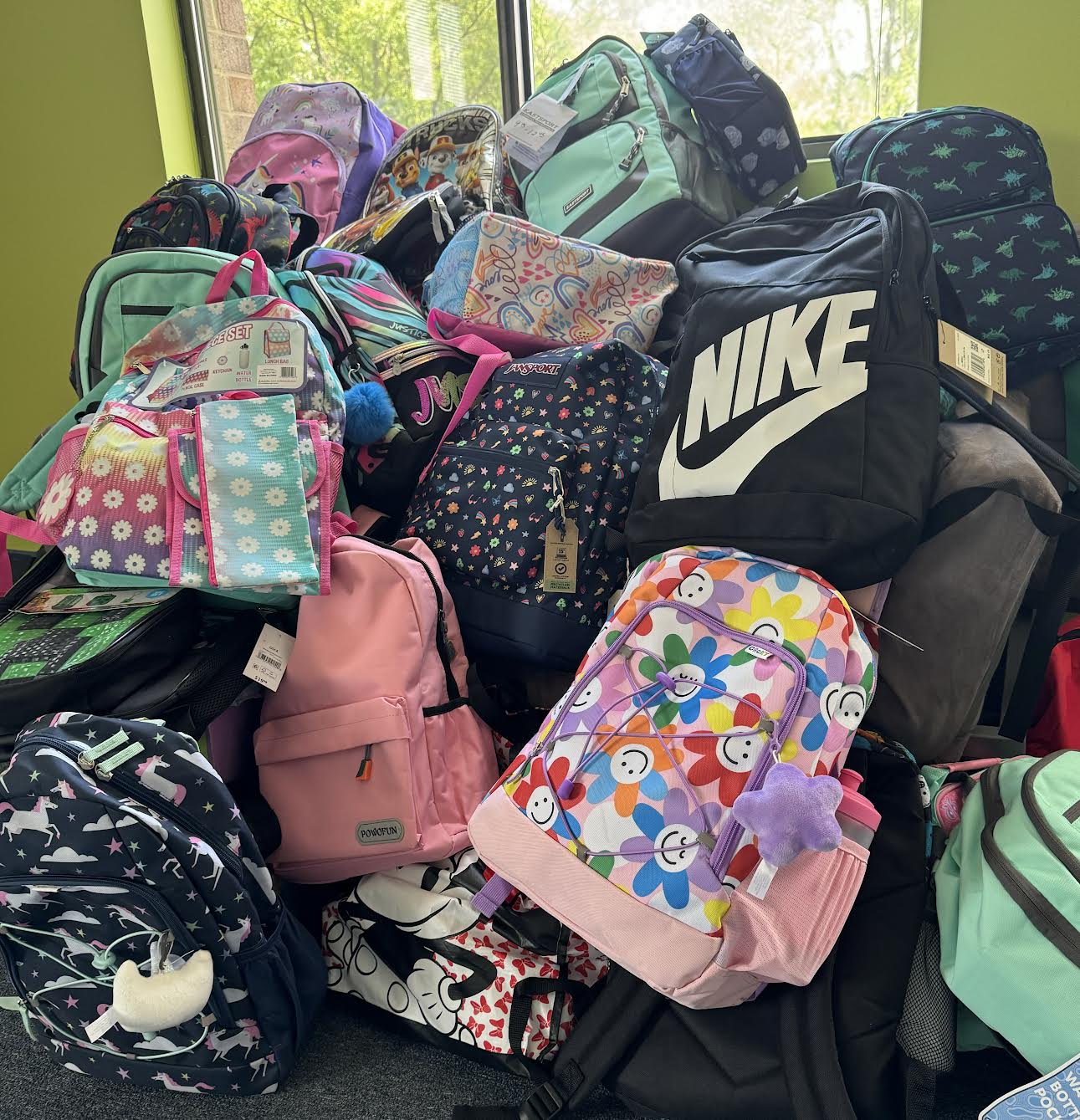
Homestretch’s Challenging Client Profiles
According to their website, Homestretch’s client profiles are extremely demanding and call for targeted, specialized and intensive services:
Our Clients Profile:
While families with the least difficult challenges are being rapidly rehoused out of the shelter system, the most challenging cases are referred to Homestretch. Homestretch is commonly sent families with no work history, few marketable skills, chronic health issues, and significant emotional trauma. Some may not speak English. The average age of someone in the program is only 8 years-old.
90% of the adults in Homestretch families are single mothers.
65% of Homestretch families are homeless due to domestic violence; 75% have been exposed to serious violence.
51% of Homestretch clients have documented disabilities.
50% of Homestretch adults have no work history.
75% have damaged credits and high debt loads.
Homestretch’s Impressive Stats
Per their website, Homestretch has been highly successful, however, in helping families “break the cycle of poverty” by bringing about “transformational change." Here are some of their highlight statistics:
Our Impact: Creating Lasting Change
2,000+ = families helped since 1990;
$12,571 is the average savings of a Homestretch family upon graduation;
$369,225 debts paid off for Homestretch families over 10 years;
147.5% is the average rise in income for a graduating family;
62% of adult clients enrolled in college or vocational training;
88% of Homestretch families remain housed after graduation vs 50% of families in other homeless programs;
78% of Homestretch families retain or improve their income once permanently housed vs 49% of homeless families in other programs;
93% of Homestretch families have savings once permanently housed vs. 2% of families in other homeless programs.
By Christopher Jones

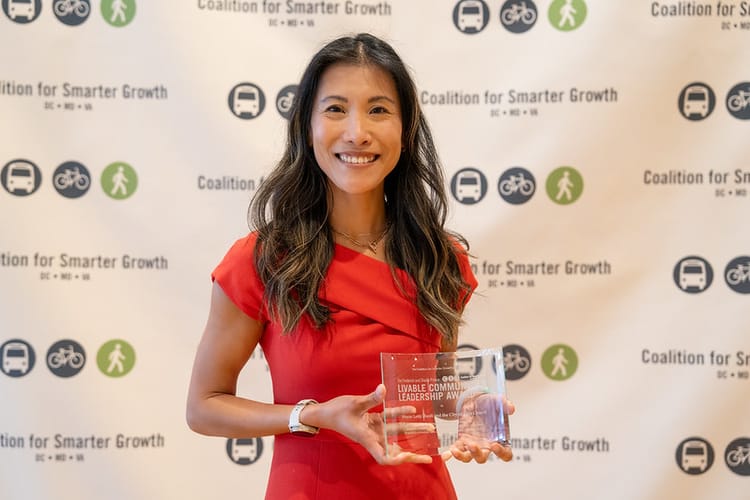
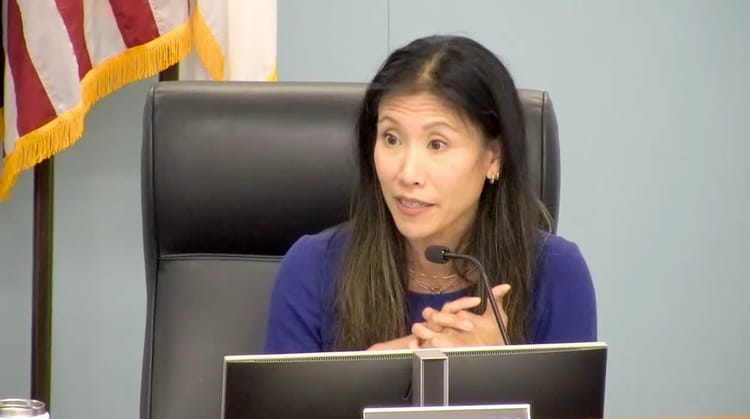
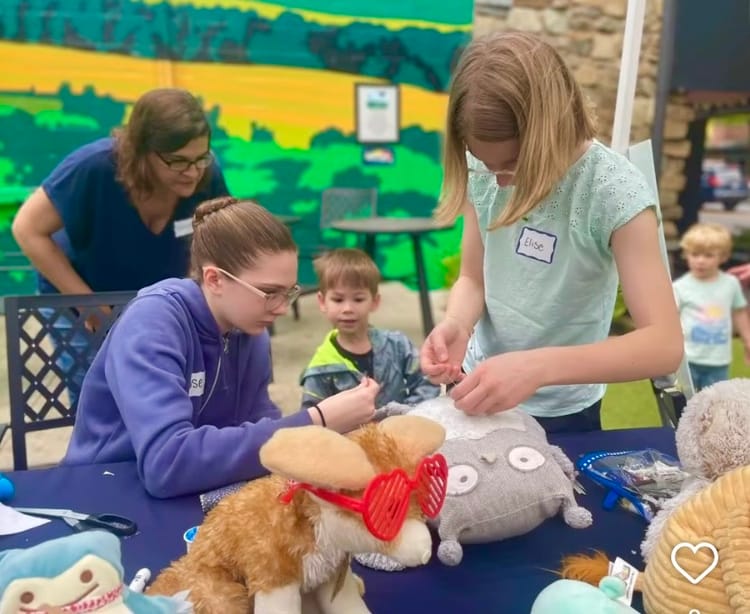


Member discussion